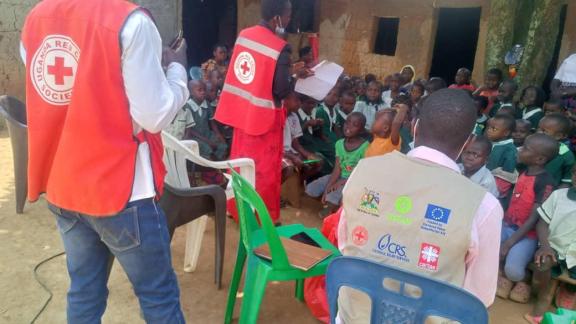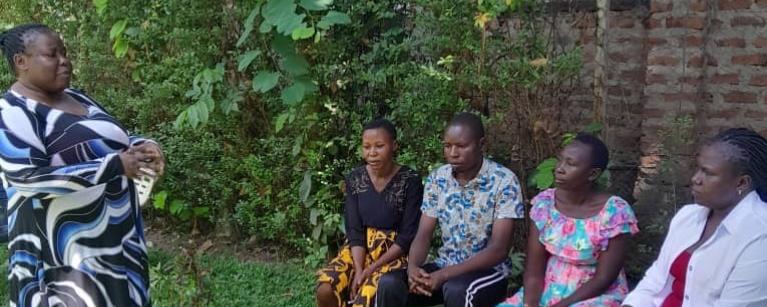Kharono Irene has served as the LC1 Chairperson of Mabanga Village, Bungokho Sub-County, Mbale District since 2018. She shares her story of how she is fighting Ebola in her community.
One of my key responsibilities is to ensure that my community is well-informed about government programs. When Ebola broke out, it was my duty to make sure they were well-informed and protected from the virus.
I work with my committee and volunteers to sensitise the communities about the disease. In February, Oxfam and the Uganda Red Cross Society provided us with posters containing vital and relevant information on Ebola, its symptoms, prevention measures, and reporting guidelines from the Ministry of Health.
We work with the deployed volunteers and the village health teams (VHTs) to distribute these materials as they distribute soap and information, education, and communication (IEC) materials to households.
One of the key messages we emphasize is handwashing. We also discourage physical contact, like handshakes, hugs, kissing because Ebola spreads through body fluids.
“Beyond that, we work hard to correct dangerous misconceptions about the disease. Some people doubt that Ebola exists, while others think that those who drink alcohol cannot contract or die from it. Such myths put our community at risk, and part of my role is to ensure that people receive accurate information.”
To reach as many people as possible, we engage them in different spaces in the local bars, funerals, and community meetings.
Because our community is densely populated, we also take advantage of the times when people gather at trading centers, especially in the evenings, to educate them.
Additionally, radio stations that host experts from the Ministry of Health and the district further disseminate accurate messages. The information we receive from the ministry and the district is the same information we share during our engagements, so the community gets consistent and credible updates.

Irene works with the deployed volunteers and the village health teams to sensitize communities (schools and households on Ebola response and prevention
One of our biggest challenges is that some people do not take our advice seriously. They assume that volunteers are only involved in sensitization efforts because they are being paid, which makes it difficult to get them to listen.
However, we continue to educate them on the importance of seeking medical care. We provide information on the health centers where they can get treatment and other health services if they get any symptoms.
As leaders, we must be empowered and well-informed so that we can pass on the right information to our people. When health challenges such as this arise, we should be prepared and knowledgeable about how to handle them.
With European Civil Protection and Humanitarian Aid Operations support, Oxfam and the Uganda Red Cross Society activated crisis intervention measures to contain the transmission, mortality, and mobility of the deadly virus among the vulnerable people in the Mt. Elgon Region. The initiative was implemented for three months to improve Infection Prevention and control (IPC) through WaSH, enhance capacity through risk communication and community engagement, establish community-based surveillance, and address misinformation.
